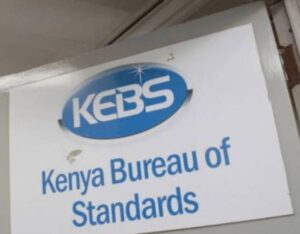
World Bank. Photo | courtesy.
Kenya’s recent push to raise revenue through higher taxes may fall short, the World Bank has warned in its latest Public Finance Review.
The report highlights systemic flaws in the country’s tax regime, citing inefficiencies, a narrow tax base, and widespread evasion and avoidance as major hurdles to increasing revenue collection. Kenya’s tax productivity, defined as the system’s ability to generate revenue with each rate hike, remains among the lowest in the region.
“Kenya’s current tax structure is constrained by low productivity and poor compliance,” the report states.
“High levels of tax avoidance and evasion, along with a weak taxpaying culture, mean higher rates alone will not yield substantial gains.”
The World Bank estimates Kenya’s potential tax revenue at 18 percent of GDP, yet the country collects about 3.6 percentage points less, highlighting a widening gap in domestic revenue mobilization amid rising demand for public services.
ALSO READ: Kenya’s Economic Uncertainty: What Govt Must Do Now
Despite being comparable to regional and structural peers, Kenya’s tax effort, the ratio of actual to potential revenue, has declined over time. Key tax components, including Corporate Income Tax (CIT) and Value Added Tax (VAT), are underperforming. Notably, Kenya records the lowest CIT productivity and VAT C-efficiency among its peer group.
VAT alone contributes over half of total tax revenues, disproportionately affecting low-income households while failing to adequately tax wealthier individuals and corporations. Similarly, Personal Income Tax (PIT) remains underproductive, partly due to wage rigidity and low responsiveness to economic growth.
The report also flags Kenya’s inconsistent tax policies as a deterrent to investment, undermining business confidence and slowing economic growth, further limiting revenue prospects.
To address these issues, the World Bank recommends rationalizing tax exemptions, expanding the tax base, particularly in the informal sector, and improving compliance, especially among high-income earners and corporations.
It also urges Kenya to adopt a more progressive tax structure, noting that the current VAT-heavy system is regressive. Fiscal incidence analysis shows most citizens are net contributors, with only the poorest 10 percent receiving net benefits.




